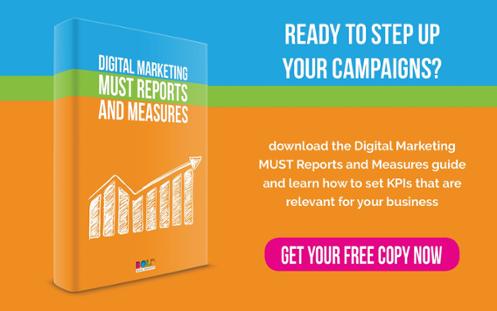The Main Steps of SEO Reporting Like a Pro
Find me on:

Introduction – SEO Reporting
A lot of SEO practitioners say that generating good SEO results requires a combination of voodoo, black magic and a load of experience. As it happens, reporting on voodoo is a bit of a problem, resulting in reports that are unreadable. On the one hand SEO is a slow developing process, on the other, search engines are evolving their algorithms constantly, making reporting clear metrics a bigger challange than other measurable marketing efforts.
As with all digital marketing reporting, the idea is to understand the bottom line of your efforts. This article will help you understand the main things to consider with regard to SEO reporting.
An SEO report should answer these questions (among others):
- Are the efforts helping to reach organic search goals? Your goals should be derived from an indepth buyer persona and keyword research. Figure out which keywords you’d like your target buyer personas to find you by. What are the keywords that will be most efficient in converting the persona to a lead?
- What SEO tasks have been completed this period?
- How did the SEO efforts help to obtain your company’s goals (new contacts/leads/customers/revenue)?
- What new opportunities are available to optimize organic searches?
- Are there any new competitive threats that you should pay attention to?
- What’s the status of your website’s health and back-links profile? Are there any risks at hand?
Below are the 3 main steps for a successful SEO Report:
Set goals and benchmarks
Quantifying the starting point usually helps clarify the final outcomes.
The key to a rockstar SEO report is determine clear goals. A valuable report should remind you of what the overall reason for the SEO investment is and it’s purpose. In order to effectively demonstrate progress, benchmarking certain metrics and including their values in the SEO report is key.
Your goals should be a measureable, attainable and time-bound. For example:
- Increasing search organic traffic by 15% for specific persona/keywords in the following 2 months.
- Increase keyword position by 1 place in 3 months.
Measure bottom line results
Ever since Google stopped sharing keyword information (SSL), we’re no longer able to measure the organic keywords of most of your traffic. This means that some targeted keywords, though not ranked super high, might be generating traffic, leads and customers.
A valuable report will detail relevant buyer persona contacts that were generated via organic traffic. Though the precise keyword source is unclear, this is an important metric that reflects whether or not you are on the right SEO track strategy wise. In other words, if you are not generating a growing number of relevant organic leads and customers, your SEO strategy needs to be evaluated holistically.

Recommended SEO report structure
- Organic traffic: amount and growth
- Persona keyword positioning
- Persona organic contact/customer acquisition
- On-site SEO health
- Percentage of goal acquired in relation with time left for attaining it.
- New back-links acquired and back-links lost
- On site SEO tasks completed
- Link profile diversity
- New threats (spammy link building, Google penatly hazard, etc)
- Tasks to be completed (and deadlines)
- Follwing month strategy including action items and deadlines
Conclusion – SEO Reporting
SEO reporting is a critical component of the digital marketing report. It deserves a conversation between your company and your marketing team in order to describe the opportunities for optimization that are seen in the metrics.
If you found this useful, I invite you to download our Digital Marketing MUST Reports and Measures eBook. This is your guide to start measuring what truly matters in your campaigns and take control of your spend. Get your FREE copy now >>
Uri Bishansky
Uri is the co-author of the Amazon no.1 Bestseller "The Smart Marketer's Guide to Google AdWords". He has been programming since he can remember himself. He lives by excels and numbers, rides bikes, loves dogs and a keen self-educator. Uri has a degree in finance and has been a google partner since 2013.
SHARE THIS STORY
Uri is the co-author of the Amazon no.1 Bestseller "The Smart Marketer's Guide to Google AdWords". He has been programming since he can remember himself. He lives by excels and numbers, rides bikes, loves dogs and a keen self-educator. Uri has a degree in finance and has been a google partner since 2013.








